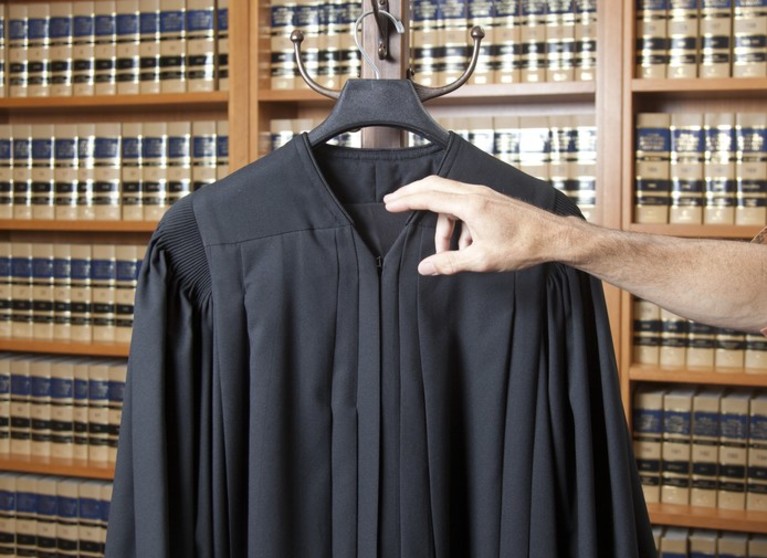In a bold stand against age-old traditions, two New York judges are mounting a fierce legal assault on the state’s mandatory retirement age of 70, invoking the freshly minted Equal Rights Amendment (ERA). This high-profile challenge, filed in Wayne County Supreme Court, spotlights a clash between judicial longevity and anti-discrimination safeguards, captivating legal watchers nationwide as it unfolds.
The petitioners, Arthur B. Williams and Richard M. Healy—both esteemed Wayne County Court Judges and Acting Supreme Court Justices—launched their hybrid Article 78 proceeding and declaratory judgment action in April 2025. Judge Williams, set to turn 70 on January 16, 2026, faces ouster on December 31, 2026, cutting short his term that runs until 2032. Judge Healy, who marked his 70th birthday on January 20, 2025, confronts retirement by December 31, 2025, despite his mandate extending into 2026. They target New York Constitution Article VI, §25 and Judiciary Law §23, arguing these relics discriminate on age grounds, now explicitly forbidden by the ERA’s expansion of Article I, §11.
The ERA, ratified by voters on November 5, 2024, turbocharged New York’s equal protection clause by adding age alongside sex, sexual orientation, gender identity, and more as shielded categories. Proponents hailed it as a bulwark against subtle biases, but skeptics worried about unintended ripples—like this judicial showdown. Pre-ERA precedents, such as Maresca v. Cuomo (64 NY2d 242, 1984), greenlit the 70-year cap under rational basis review, citing perks like fresh blood on the bench and dodging case-by-case fitness probes. Yet the judges counter that the amendment catapults age into “suspect class” territory, demanding strict scrutiny: Is forcing seasoned jurists out narrowly tailored to a compelling interest? They say no, pointing to U.S. Supreme Court musings in Gregory v. Ashcroft (501 U.S. 452, 1991) that not all judges falter at 70.
The state’s riposte? The ERA doesn’t nuke the specific constitutional retirement clause; provisions must harmonize, not collide. Bills like 2025-A3756, aiming to bump the age to 76 with certification options, signal lawmakers’ intent to tweak via legislation, not judicial fiat.
On June 16, 2025, Wayne County Supreme Court Justice Rory A. McMahon delivered a mixed verdict. He denied a preliminary injunction, ruling Healy’s injury not yet imminent for standing and Williams’ claims unripe. But he converted the case to a full declaratory judgment, dismissing Governor Kathy Hochul and Chief Administrative Judge Joseph A. Zayas by stipulation while greenlighting intervention by candidate Jeannie D’Alessandro and an amicus brief from the New York Civil Liberties Union (NYCLU). “It would appear that one of the direct purposes of the Equal Rights Amendment was to designate age as a suspect class,” McMahon wrote, nodding to strict scrutiny’s potential bite—yet holding that one constitutional edict can’t void another without repeal.
Legal eagles are buzzing. NYCLU’s amicus push underscores the ERA’s “transformative” scope, per their filing, urging courts to evolve with voter will. “This isn’t about clinging to power; it’s about equal rights for all, including those who’ve earned their robes,” says civil rights attorney Lena Markovska, unaffiliated but vocal on similar fights. Public sentiment tilts sympathetic: Forums light up with tales of capable elders sidelined, echoing broader gripes over ageism in professions from tech to sports.
For everyday Americans, this NY judges retirement saga ripples far. It probes economic equity—veteran judges like Williams and Healy, with decades of service, bolster rural courts strained by vacancies, per Motion Picture Association—no, wait, judicial stats show Wayne County juggles caseloads amid shortages. Lifestyle-wise, it champions second acts, challenging stereotypes that hobble boomers’ contributions. Politically, it pressures Albany: With bills like S7455 floating to hike the cap, could this spark ERA-fueled reforms in teacher tenure or cop pensions? Tech angles? AI ethics boards might eye similar age bars, ensuring diverse oversight.
User intent boils down to justice and precedent—plaintiffs crave certification of their class-like claims, eyeing recovery of bench time. Case management now pivots to merits briefing, with appeals looming if lower courts balk.
In sum, this mandatory retirement age NY battle tests the ERA’s teeth, balancing bench renewal against bigotry’s ban. Outlook? Legislative lifts seem likelier than judicial overhauls, but a win could cascade, empowering age-diverse leadership across U.S. institutions. Watch Wayne County: It might just rewrite the rules of retirement.
By Sam Michael
October 6, 2025
Follow and subscribe to us for push notifications on breaking news and exclusive updates.
ny judges retirement challenge, equal rights amendment ny, mandatory retirement age judges, age discrimination new york judges, wayne county judges lawsuit, ny era judicial retirement, strict scrutiny age discrimination
